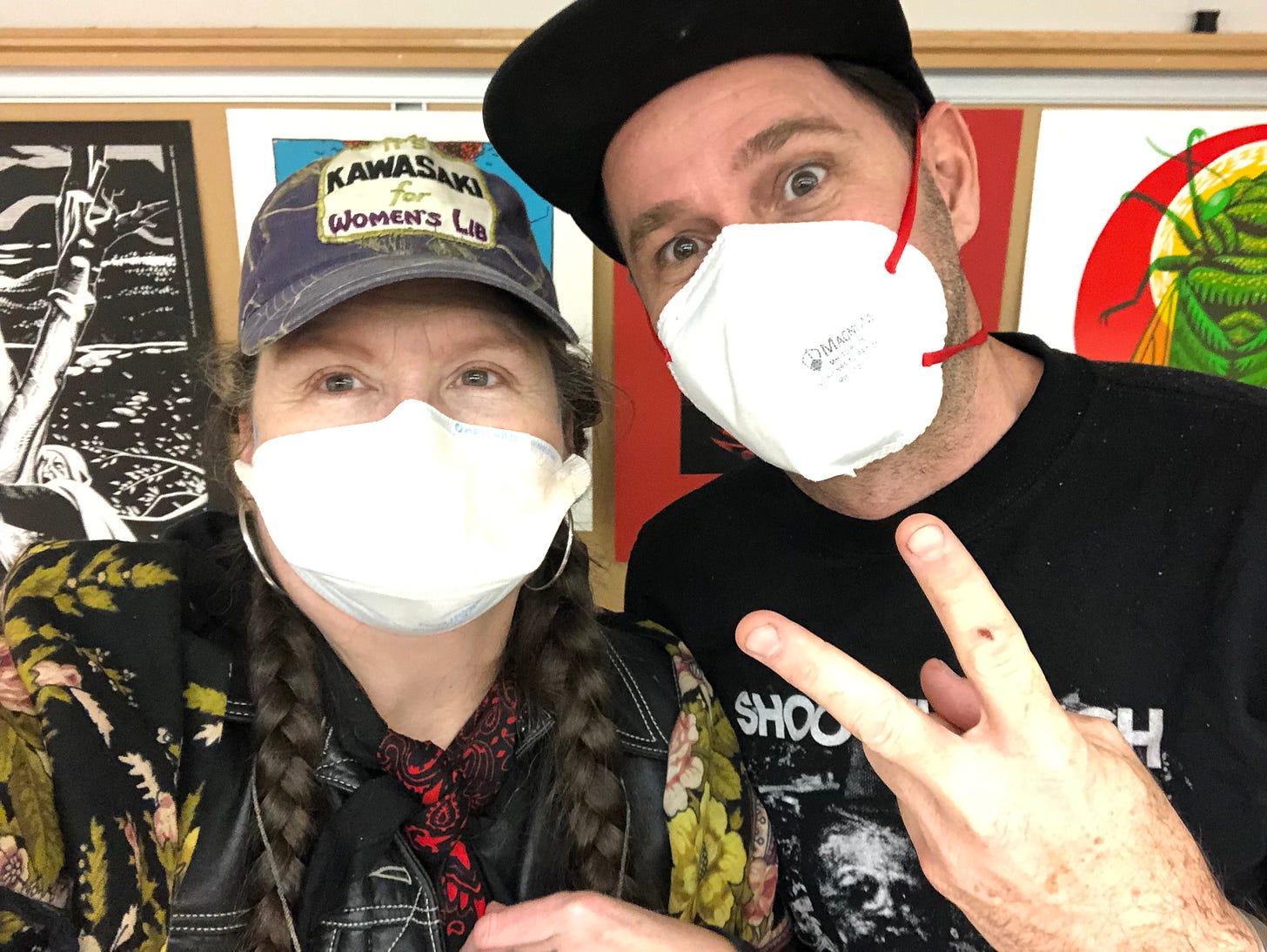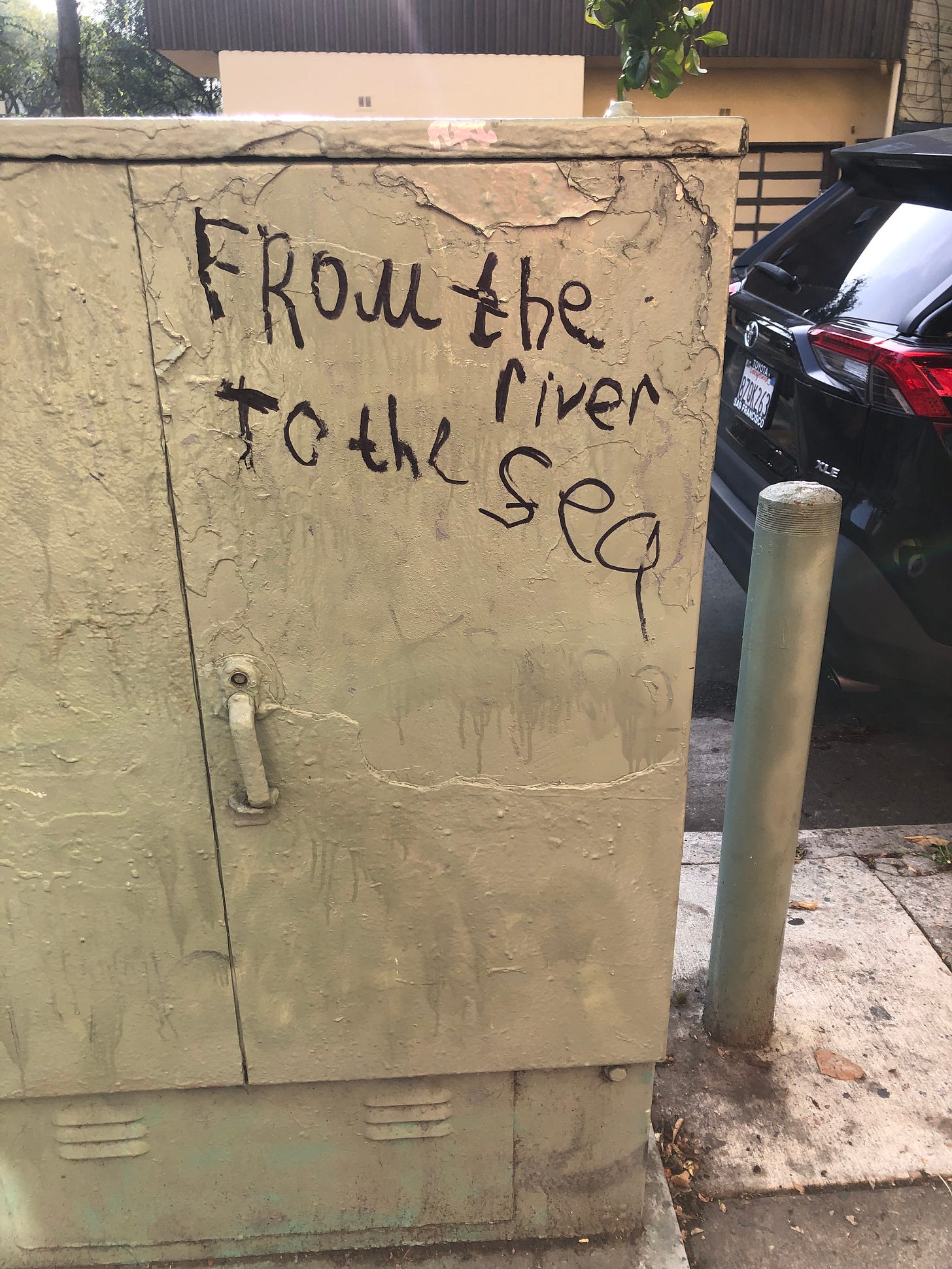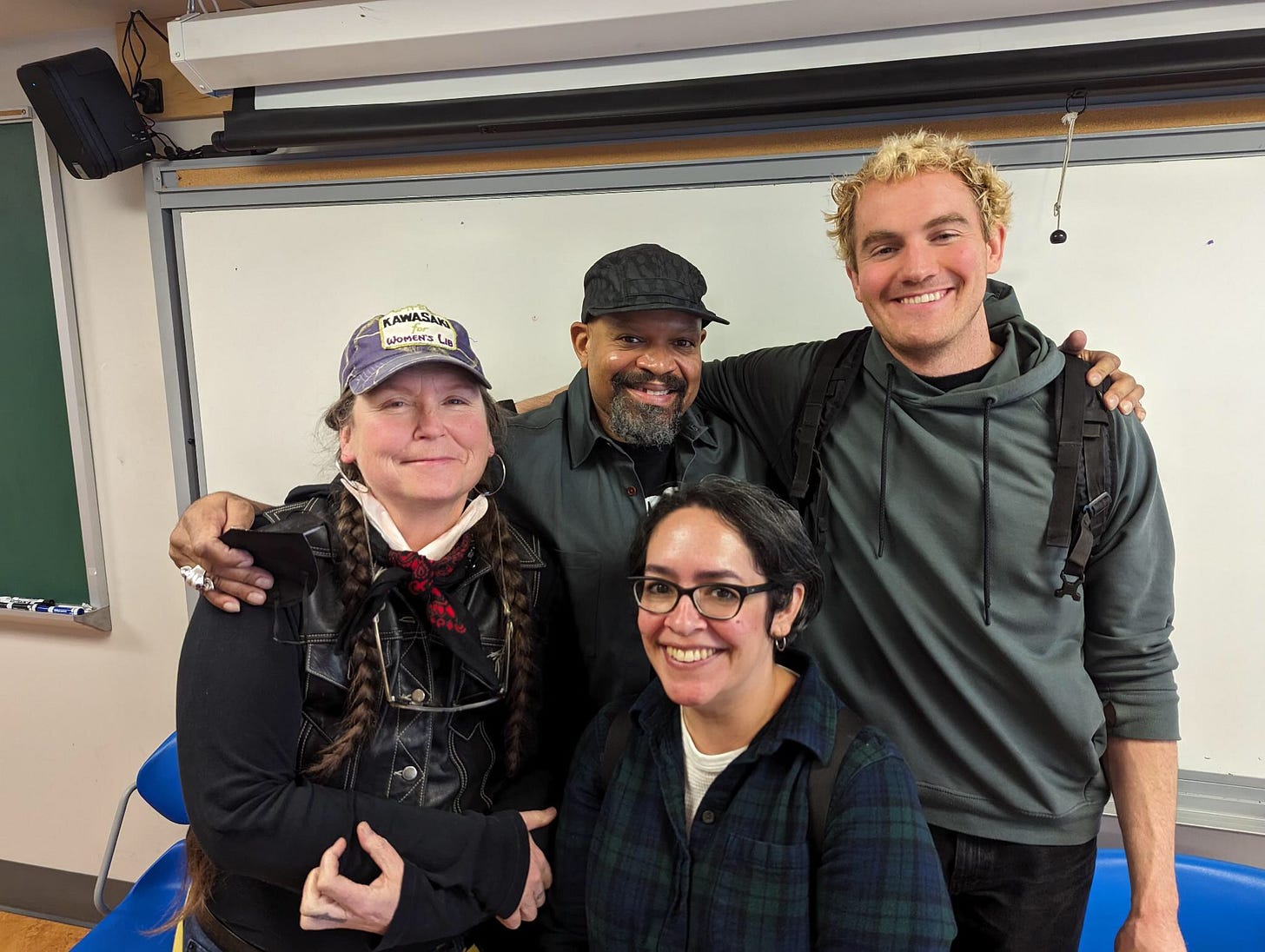
People are practical. They want change but feel powerless, alone, do not want to be the blade of grass that sticks up above the others and is cut down. They wait for a sign from someone else who will make the first move, or the second. And at certain times in history, there are intrepid people who take the risk that if they make that first move others will follow quickly enough to prevent their being cut down. And if we understand this, we might make that first move.—Howard Zinn, You Can’t Be Neutral On A Moving Train
The 2023 Howard Zinn Book Fair: Against Amnesia, convened Sunday, December 3 for the first time since 2019, at the Mission Campus of the Community College of San Francisco. I was privileged to attend alongside fellow authors Celina Flores, Mic Crenshaw, and at the last minute Shannon Clay for whom we made room when his session shifted. Readers of Subversion Through Friendliness will remember Shannon from the Chicago events of the It Did Happen Here tour earlier this year. Shannon is one of the four authors of We Go Where They Go: The Story of Anti Racist Action, along with Lady, Michael Staudenmaier and Kristin Schwartz.
My lovely host Annie Danger commented afterwards that the HZBF is the more well-funded, intellectual, higher education-affiliated of San Francisco’s two anarchist book fairs—the other being the Bay Area Anarchist Bookfair. This was my second time on a panel at a conference, and the first time presenting without experiencing food poisoning. The vibe was very sweet, the air alive with the hum of passionate people gathered around a deep well of ideas. I loved being around dozens of intellectual elders. Support for Palestine was everywhere reflected, and behind N95 masks people’s faces shone with interest, connection, joy, and curiosity. The free book fair featured exuberant scheduling—over 70 different sessions like ours, and 60 publishers tabled in two large rooms. I said hi to Portland artist Roger Peet, a prolific printmaker and muralist holding down the Just Seeds Artist Cooperative table with San Francisco artist Fernando Martí. I was happy to see they were almost sold out of prints.
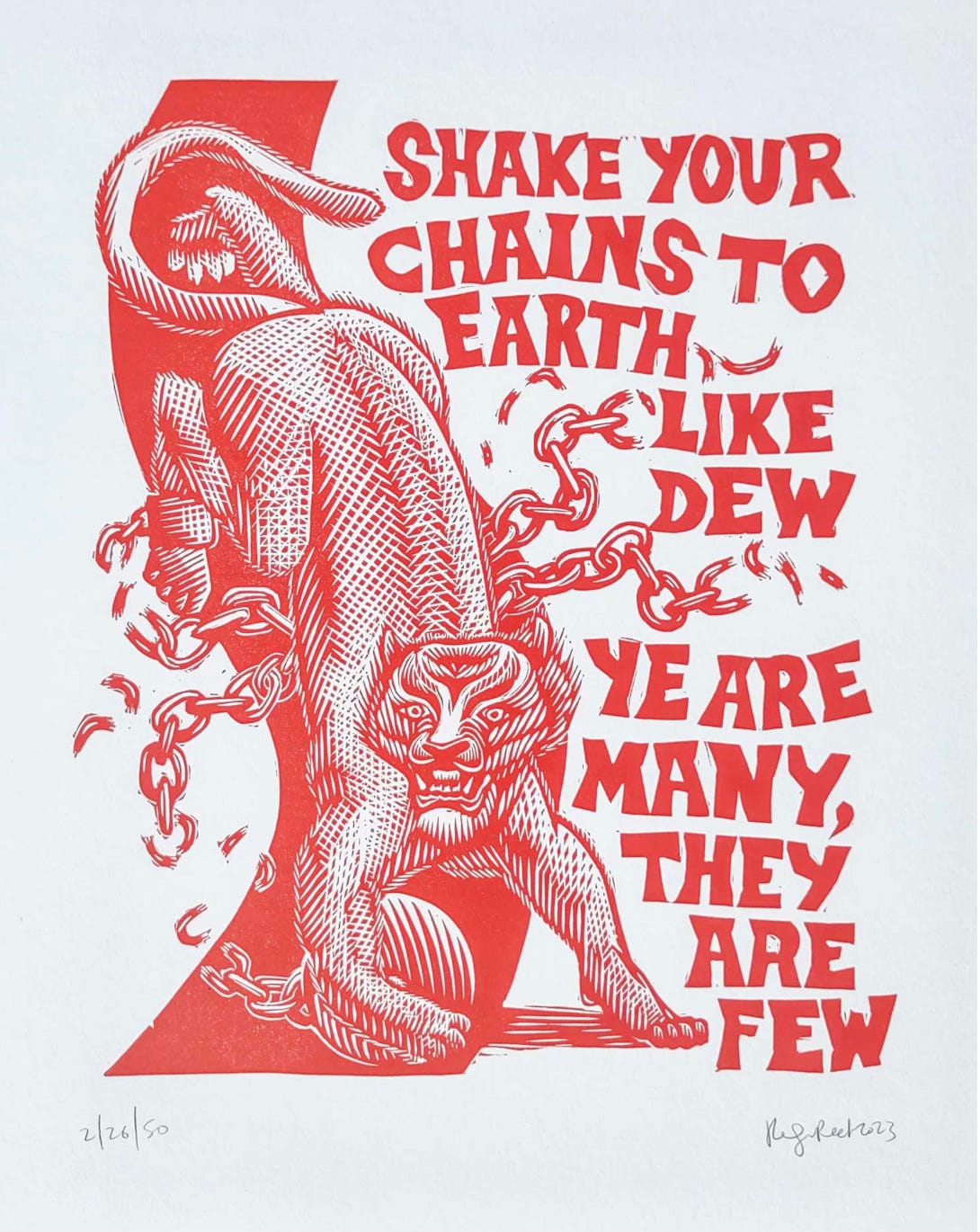
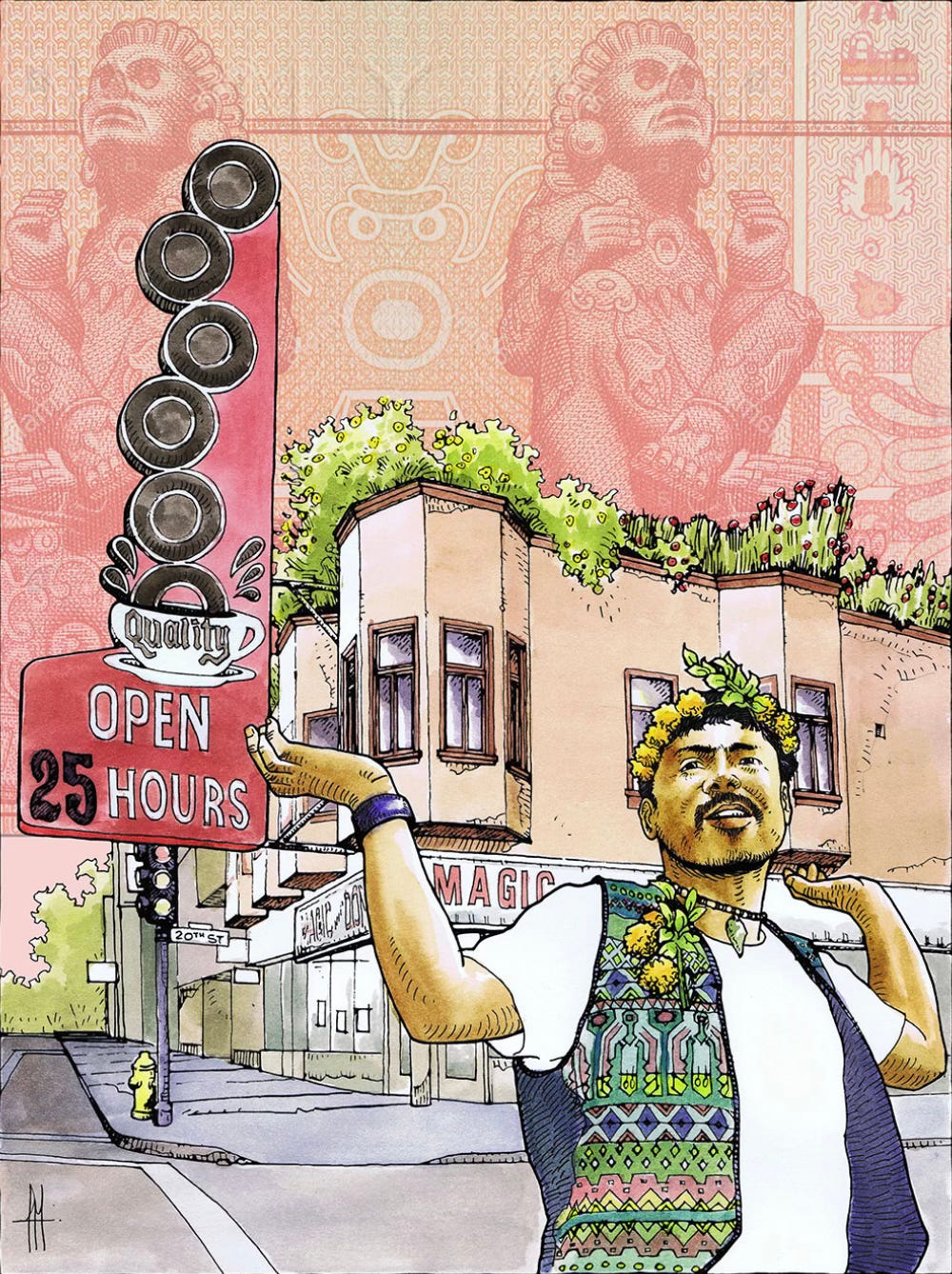
“ Far-right projects such as book bans, so-called “anti-woke” campaigns, “don’t say gay” legislation, and the dismantling of Ethnic Studies serve to build a historical and political amnesia as our opponents work to warp our sense of the past and sabotage our ability to imagine a future of collective liberation. We are against amnesia. But what do we remember? What truths do we tell about past social movements that provide lessons for today’s organizers and activists? How will the work we are doing now be remembered in the future?”
—2023 Howard Zinn Book Fair, ‘Against Amnesia’
As 12:30 approached, 20 people drifted into the small classroom; over the two hours of our session the audience doubled. We introduced ourselves and opened discussion, which immediately caromed across vast leftist political landscapes. A man wearing a hat embroidered with a hammer and sickle gave a verbal tour of U.S. atrocities in Central and South America, and sidestepped into a mention of the murder of Rosa Luxembourg. Shortly after, a PhD-having professor emeritus launched a long speech that eventually promoted his own book with PM Press, about which, he informed us, he would be presenting at a later session. I wish he had told us a little more about himself; when I looked on the PM Press page I saw he was a founding member of the Students for a Democratic Society at the University of Michigan, and founding director of a Center for Study of Working Class Life at a school back east where he’s been teaching since 1967. He seemed interesting. I bet we have a lot in common. I frowned internally at the space these men took up, putting themselves and their interests forward without acknowledging that there was a topic afoot. Sadly this has been my experience for many years with older activists, whether Boomers or Silent Generation. I appreciate these moments for how they help me—when talking to younger people, or other authors and activists—to remember to ask questions, weave connections, keep it short, and walk away remembering who they were and the gist of their project.
I appreciate also, certainly in this context, the expansive opportunity I receive to get my head around what my own message is, what I am here to say, what questions I want to ask. Due to day-job limitations, I arrived at the conference that morning, still shaking the rain of Portland out of my brain. After a third well-intentioned activist Boomer man who has (I learned later) a long history of derailing conversations at Bay Area leftist events—when this man brought a question of talking to others about whether to ring doorbells for Biden, I started yelling.
Keep reading with a 7-day free trial
Subscribe to Subversion Through Friendliness to keep reading this post and get 7 days of free access to the full post archives.




